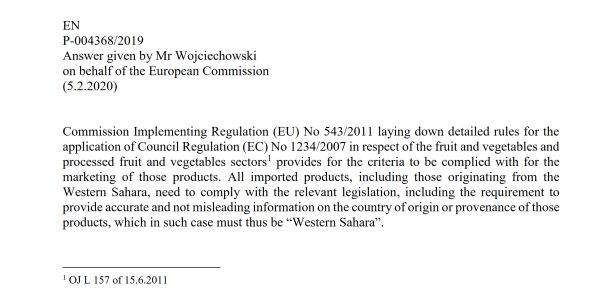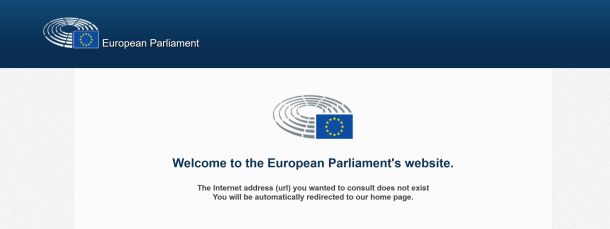
A clarification by the EU Commission on labelling of products from Western Sahara was published, then removed, then published again and has now been removed again from EU websites.
"We invite the European Commission to publish its statement for the third time", says Sara Eyckmans from WSRW.
On 5 February 2020, the EU Commission announced that products from Western Sahara should be labelled accordingly. But about 24 hours later, all traces to that statement had been removed from EU websites.
Two days ago, the statement by the Commission was published again, without any changes. The text was identical to the one of 5 February:
"All imported products, including those originating from the Western Sahara, need to comply with the relevant legislation, including the requirement to provide accurate and not misleading information on the country of origin or provenance of those products, which in such case must thus be “Western Sahara”.
Today, in the most bizarre chain-of-events, that statement has once again disappeared from the European Parliament's website.
"It is indecipherable. The reason could be anything from a web-technician looking forward to the weekend, all the way up to pressure from Rabat which will most certainly not be amused with this tangible recognition that Western Sahara is not Morocco. In either event, we look forward to clarifications from the Commission, both on this turn of events and on the issue of labelling", Eyckmans concludes
EU Commission backtracks on labelling Western Sahara goods
What is EU's position on labelling of products from occupied Western Sahara? The EU Commission has now for the third time published a response to a parliamentary question on the matter, but the latest version fails to address the question.
EU reaffirms: Western Sahara products to be labelled as such
Two weeks ago, the EU Commission announced that products from Western Sahara should be labelled accordingly, only to withdraw that statement the very next day. Today, the Commission reaffirms its original position.
Spectacular backtracking by EU Commission on Western Sahara labelling
On 5 February 2020, the EU Commission announced that products from Western Sahara should be labelled accordingly. But about 24 hours later, all traces to that statement had been removed from EU websites.
EU consumers, like Saharawis, ignored by EU lawmakers
The proposed trade scheme for occupied Western Sahara denies EU consumers the right to know the true origin of covered products, just like it failed the right of the people of Western Sahara to decide whether they wanted the deal in the first place.


